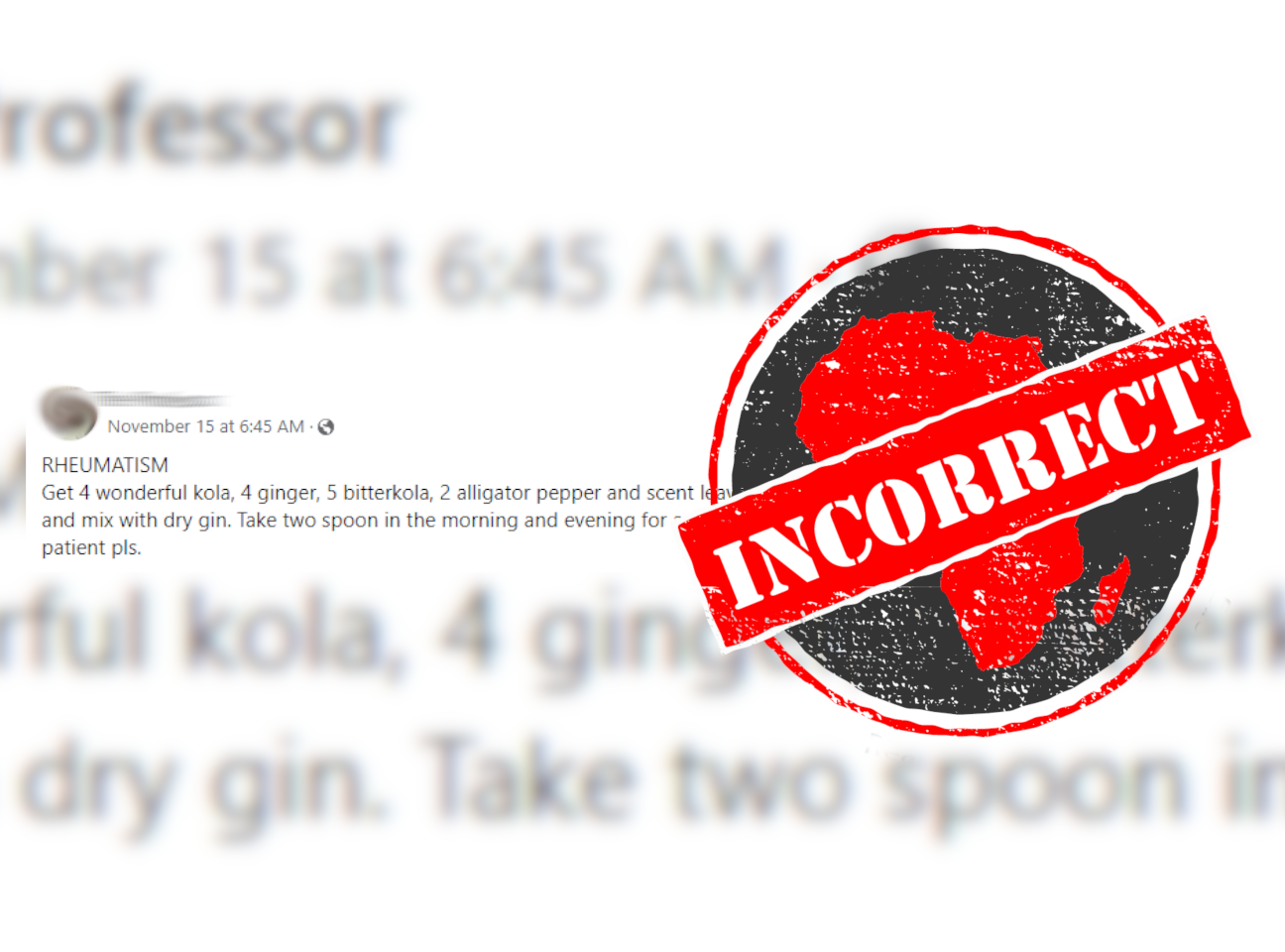“The Professor”, a Nigeria-based Facebook page offering bogus and sometimes dangerous health remedies – many of which Africa Check has previously debunked – now claims it has a treatment for rheumatism.
Rheumatism isn’t a medical word, but people often use it to describe forms of arthritis such as rheumatoid arthritis or osteoarthritis. The many different types of arthritis may cause pain, swelling and stiffness in the joints between our bones – such as in the hands, feet, hips, knees and spine.
This is the recipe “The Professor” gives for their rheumatism treatment: “Get 4 wonderful kola, 4 ginger, 5 bitter kola, 2 alligator pepper and scent leaves. Pound together and mix with dry gin. Take two spoons in the morning and evening for a week.”
They add: “Not for Ulcer patient pls.”

No cure for rheumatism
Africa Check asked Samuel Ghasi, a professor of pharmacology at the University of Nigeria, about the remedy.
“There is no cure for rheumatism,” he told us. “People have tried all sorts of treatments, to no avail.” He added: “People battling with this condition rely heavily on strong painkillers.”
Peculiar Onyekere, a pharmacist and member of the Commonwealth Pharmacists Association, also told us there was no cure, and the only treatment was to manage the symptoms of pain and swelling.
“The available drugs known as disease-modifying anti-rheumatic drugs (DMARDs) and other anti-inflammatory drugs help to only manage the symptoms and pain associated with it. But, for now, there are no known conventional drugs that will serve curative therapy.”
Republish our content for free
For publishers: what to do if your post is rated false
A fact-checker has rated your Facebook or Instagram post as “false”, “altered”, “partly false” or “missing context”. This could have serious consequences. What do you do?
Click on our guide for the steps you should follow.
Publishers guideAfrica Check teams up with Facebook
Africa Check is a partner in Meta's third-party fact-checking programme to help stop the spread of false information on social media.
The content we rate as “false” will be downgraded on Facebook and Instagram. This means fewer people will see it.
You can also help identify false information on Facebook. This guide explains how.


Add new comment